Scientists say kids doing chores helps their development
- Published
- comments
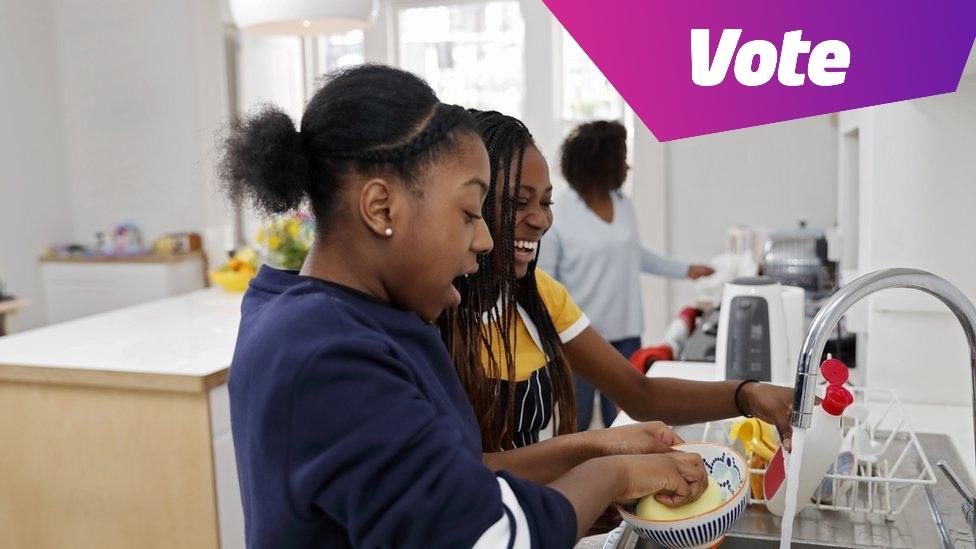
You might not be a big fan of chores but new research suggests that they can get help you develop problem solving skills and even do better in school.
The study has come from from La Trobe University in Australia and was carried out with more than 200 parents and children aged 5-13.
Parents were asked about their child's engagement after doing chores.
They reported that chores helped to boost a child's executive functions: These include the ability to focus, to plan, to switch between tasks, to remember instructions and control their behaviour.
Let us know in the comments what chores you have to do and we're asking YOU - should children be given MORE chores to help them develop news skills? Have your say in our vote.
'Problem solving'
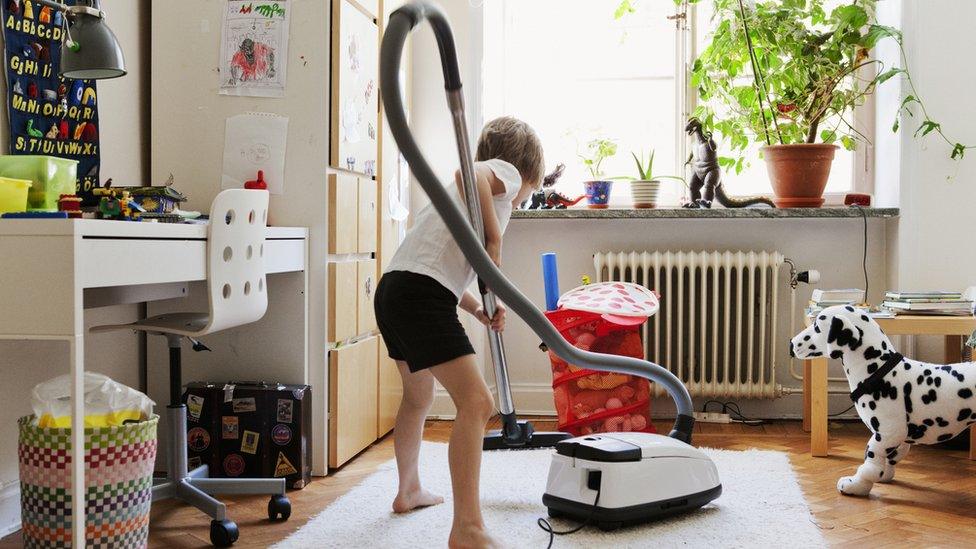
Led by researcher Deanna Tepper, the study's results indicate that taking part in chore-like activities such as cooking or gardening may be particularly beneficial for young people.
She said: "Children who cook a family meal or weed the garden on a regular basis may be more likely to excel in other aspects of life - like schoolwork or problem solving."
The study was conducted during Covid lockdowns in 2020, with 207 parents and guardians asked to complete questionnaires on the number of chores their children completed daily and their child's engagement and focus.
If you can't see this vote, click here.
Half of parents reported that their child was doing the same amount of chores as before the pandemic and 37 per cent saying their child was doing more.
The researchers found that engagement in self-care chores, such as making themselves a meal, and family-care chores, for instance making someone else a meal, significantly improved the children's ability to think before acting.
They also took into account the influence of age, gender and presence or absence of a disability.
'Satisfaction and self responsibility'
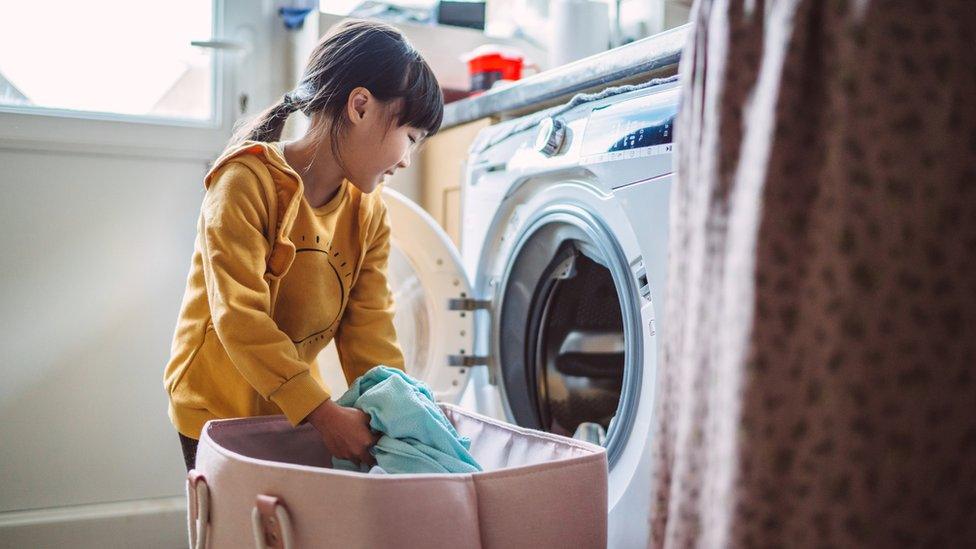
Previous research has shown that getting children involved in chores appropriate for their age can give a greater level of satisfaction and self responsibility, as well as improving social behaviour.
But this is the first study to look at the association between regular chores and children's brain development - particularly executive functioning.
Experts say that delays in developing these skills can lead to difficulties in planning and problem solving as adults, which can also affect reading performance and mathematical ability, as well as predicting overall academic achievement in later childhood.
Do chores you 'enjoy'
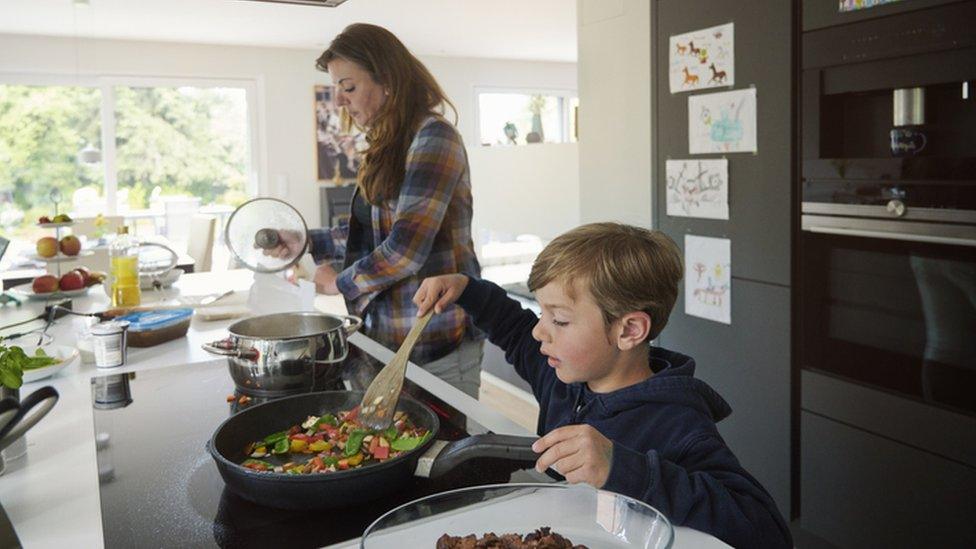
Ms Tepper said often the issue is that chores can seem boring to children, so parents should pick those that their children enjoy!
"If your children seem to like cooking, then get them involved in that. If they like gardening, encourage that interest from a young age", she said.
"Some children really enjoy mimicking their parents, so they actually like getting into the kitchen and copying what their parents do."
Girls tended to be better at putting clothes away and making their beds, while boys preferred taking out the rubbish, Ms Tepper added.
- Published1 May 2014
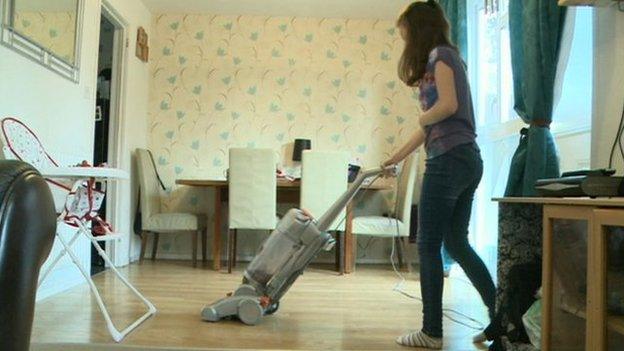
- Published1 May 2014
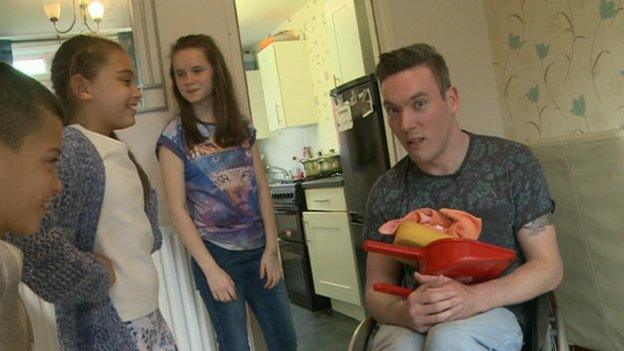
- Published2 December 2019

